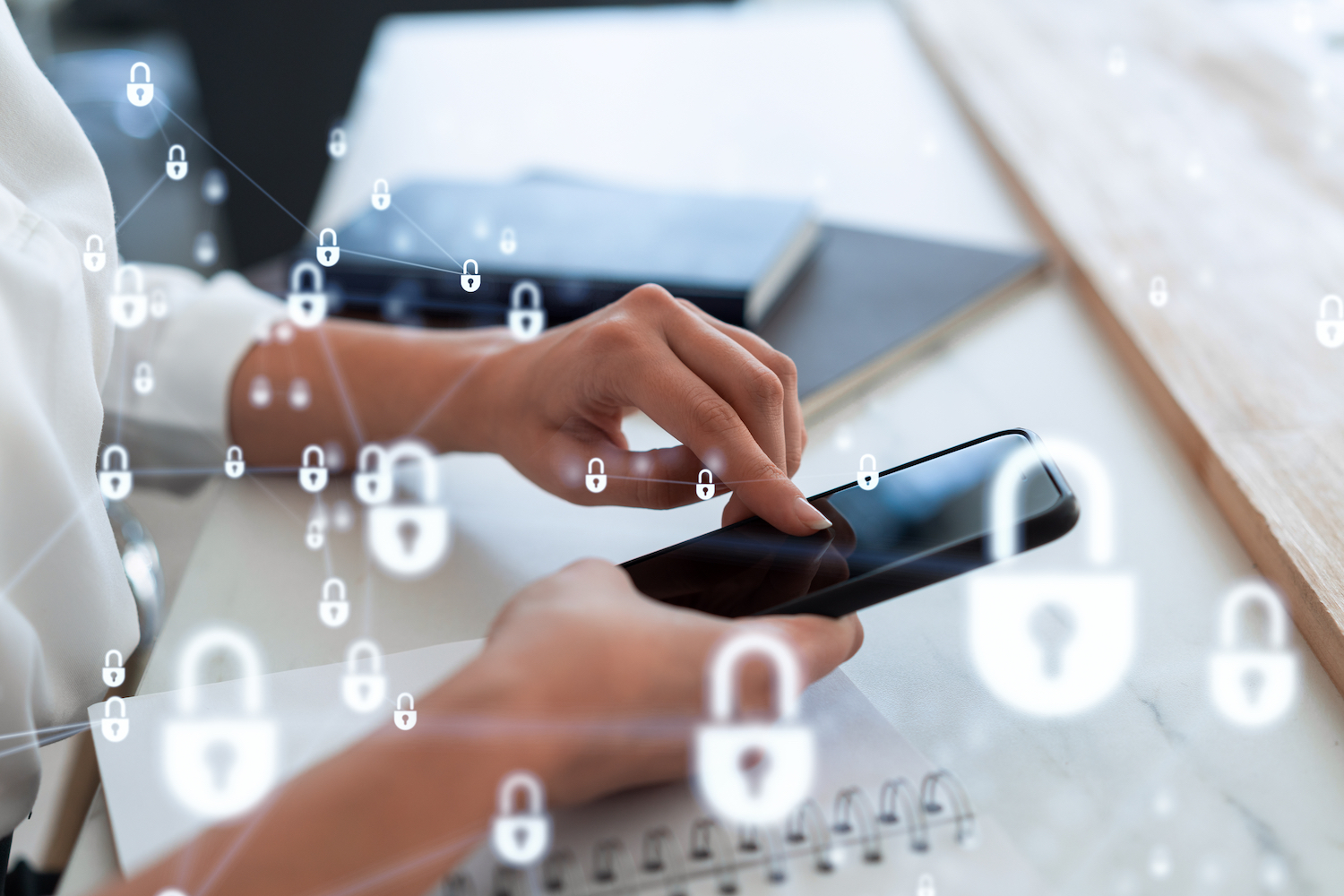Recent Posts
VoIP Security: How to Protect Your Business from Cyber Threats

Voice over Internet Protocol (VoIP) has transformed the way businesses communicate, offering cost savings, flexibility, and advanced features that traditional phone systems can’t match. However, as with any internet-based technology, VoIP is vulnerable to cyber threats. Without proper security measures, businesses risk exposure to hacking, fraud, and data breaches. In this post, we’ll explore the key security risks facing VoIP systems and outline effective strategies to protect your business from cyber threats.
Understanding VoIP Security Risks
While VoIP delivers significant benefits to businesses, it also opens the door to unique security challenges. Unlike traditional phone systems, which operate over physical phone lines, VoIP relies on internet connections to transmit voice data. This shift makes VoIP systems susceptible to a range of cyberattacks.
Some of the most common VoIP security threats include:
- Phishing and Social Engineering: Attackers can use phishing techniques to trick users into revealing sensitive information, such as passwords or account details.
- Eavesdropping: Without encryption, VoIP calls can be intercepted by attackers, allowing them to listen to conversations and steal sensitive data.
- Denial of Service (DoS) Attacks: Attackers can overwhelm a VoIP system with excessive traffic, disrupting communication and causing system downtime.
- VoIP Fraud: Hackers may infiltrate VoIP systems to make unauthorized calls, often leading to expensive international or long-distance call charges.
Understanding these threats is the first step in securing your VoIP system and ensuring your business communication remains protected.
Use Strong Passwords and Authentication
Weak passwords are one of the most common vulnerabilities in any internet-based system, and VoIP is no exception. To prevent unauthorized access, it’s essential to enforce strong password policies across your organization.
- Complex Passwords: Encourage employees to use complex passwords that combine upper and lowercase letters, numbers, and special characters. Avoid using easily guessable passwords such as “password123” or default settings provided by VoIP vendors.
- Multi-Factor Authentication (MFA): Implementing multi-factor authentication adds an extra layer of security by requiring users to provide two or more verification factors (e.g., a password and a one-time code sent to their phone). MFA makes it significantly harder for attackers to gain access to your VoIP system, even if they manage to steal passwords.
By prioritizing password security and leveraging MFA, you can dramatically reduce the risk of unauthorized access to your VoIP infrastructure.
Encrypt VoIP Traffic
Encryption is one of the most effective ways to protect VoIP communication from eavesdropping and interception. By encrypting voice and data transmissions, you ensure that even if a hacker intercepts your calls, they won’t be able to decode the information.
- Encryption Protocols: Look for VoIP providers that offer end-to-end encryption using secure protocols such as SRTP (Secure Real-time Transport Protocol) or TLS (Transport Layer Security). These protocols scramble the voice data, making it unreadable to anyone who doesn’t have the decryption key.
- VPN Usage: Using a Virtual Private Network (VPN) adds another layer of encryption to VoIP traffic. A VPN creates a secure tunnel for data to pass through, preventing unauthorized access to your network and VoIP calls. This is especially useful for businesses with remote employees or those using public Wi-Fi.
Implementing strong encryption ensures that your business conversations and sensitive data remain confidential, even in the event of an attempted breach.
Implement Network Security Best Practices
Securing your overall network is crucial to protecting your VoIP system from external threats. Since VoIP relies on the same network infrastructure as your other digital assets, vulnerabilities in your network can compromise your VoIP system.
- Firewalls: Use firewalls to monitor incoming and outgoing traffic and block suspicious or malicious activity. A firewall tailored for VoIP can help filter out potential threats while allowing legitimate traffic to pass through.
- Session Border Controllers (SBCs): SBCs are specialized devices that sit between your internal VoIP system and external networks. They provide an additional layer of security by controlling call sessions, filtering unauthorized access, and mitigating DoS attacks.
- Intrusion Detection Systems (IDS): An IDS monitors network traffic for signs of unusual or malicious activity and alerts administrators when threats are detected. By implementing IDS, businesses can quickly identify and respond to potential security breaches before they escalate.
By strengthening your network security, you can provide a secure foundation for your VoIP system and reduce the risk of cyberattacks.
Regularly Update and Patch Your VoIP System
Outdated software can be a gateway for hackers to exploit vulnerabilities in your VoIP system. Many businesses fall into the trap of “set it and forget it” with their VoIP software, leaving their systems exposed to known vulnerabilities.
- Software Updates: Make sure your VoIP system and any associated hardware are regularly updated with the latest security patches. VoIP providers frequently release updates to fix bugs and patch security holes, so it’s essential to stay current.
- Firmware Updates: Many VoIP systems rely on routers, phones, and other hardware devices that also require firmware updates. Ensure that these devices are updated regularly to maintain the highest level of security.
By keeping your system up-to-date, you can prevent attackers from exploiting weaknesses in your software or hardware.
Monitor and Log VoIP Activity
Constant monitoring of your VoIP system is essential to detect and respond to potential threats in real-time. By logging all VoIP activity, you can identify unusual patterns that may indicate a security breach.
- Call Logs: Regularly review call logs to spot any irregularities, such as unauthorized calls, international calls to unknown numbers, or excessive call volumes.
- Security Audits: Conduct regular security audits to assess the effectiveness of your VoIP security measures. Audits can help identify vulnerabilities and ensure that your system is properly configured to prevent attacks.
- Automated Alerts: Set up automated alerts to notify your IT team if suspicious activity is detected, such as repeated failed login attempts or spikes in network traffic.
Effective monitoring and logging allow you to catch potential issues early and take immediate action to protect your VoIP system.
Train Employees on VoIP Security Best Practices
Even with the best security measures in place, human error can still be a weak link in your VoIP system’s defenses. Employee training is essential to ensure that everyone in your organization understands how to use VoIP securely.
- Phishing Awareness: Teach employees how to recognize phishing attacks and avoid falling victim to social engineering tactics that could compromise the system.
- Security Protocols: Ensure employees understand the importance of using strong passwords, keeping software up-to-date, and reporting any suspicious activity to IT immediately.
A well-informed team is your first line of defense against many common VoIP security threats.
VoIP technology offers significant advantages for businesses, but it also introduces unique security challenges. By implementing strong passwords, encrypting calls, securing your network, and keeping your system up-to-date, you can significantly reduce the risk of cyber threats to your VoIP infrastructure. Coupled with ongoing monitoring and employee training, these measures ensure that your business can enjoy the benefits of VoIP without compromising security.
Investing in VoIP security is essential to safeguarding your business communications, protecting sensitive information, and maintaining your reputation in an increasingly connected world.
















